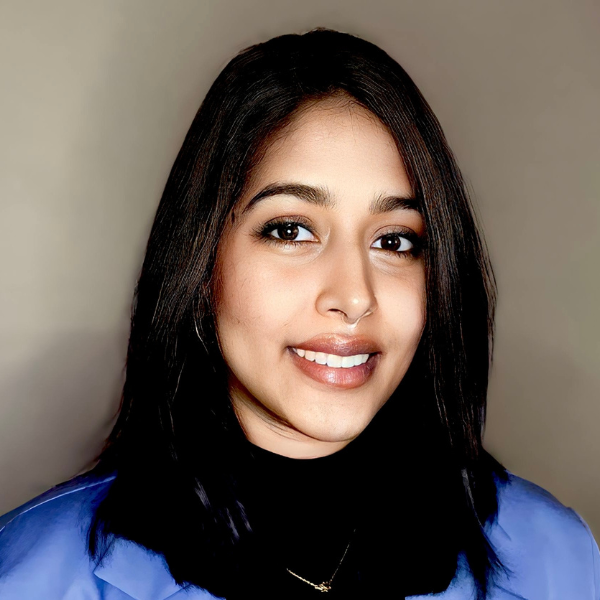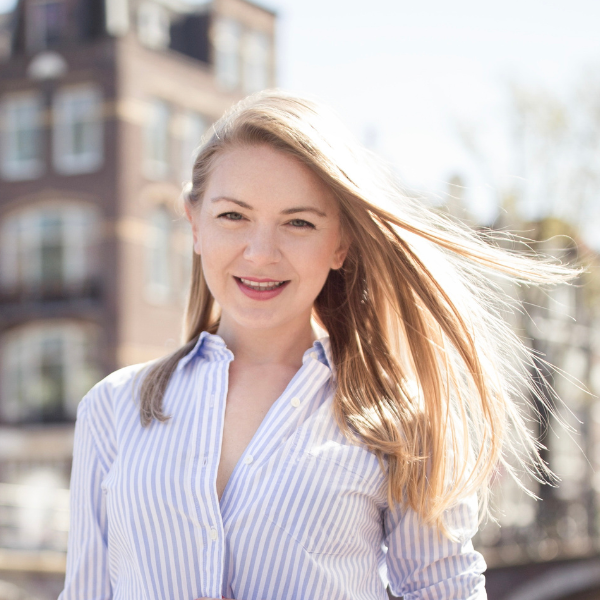I hope to leverage the insights and network gained through the EMFin programme to drive large-scale, transformative initiatives in the conservation and nature-positive space.
Anne Cathrine Garde

Tell us a bit about what you are currently doing.
I am the Chief Investment Officer at Natural Capital, a conservation investment and management group focused on restoring and protecting high-value, natural ecosystems across Africa. Our mission is to deliver measurable environmental and social impact while achieving sustainable financial returns.
My journey into sustainability began over a decade ago at PricewaterhouseCoopers, where I provided sustainability consulting for large corporates. During this time, I gained exposure to responsible investment and private equity.
This experience inspired my transition from sustainability to corporate finance, motivated by the potential to drive greater impact. And while it was a big shift in terms of focus and culture, it aligned well with my long-term vision of integrating these two fields in a capital allocator role.
This vision came to fruition during my time at BESTSELLER Foundation, a part of a family office dedicated to impact investments with a focus on climate in emerging markets such as India and Africa. Now at Natural Capital, I am building on this foundation to integrate conservation and finance at scale.
What made you want to embark on INSEAD’s Executive Master in Finance (EMFin) programme?
There were quite a few factors. Even though I consider myself a numbers person, I was never formally educated in finance. Over the years, as I transitioned from sustainability consulting to corporate finance, I realised how important it was to have a broader financial toolbox, especially if I wanted to be more involved in the allocation role, rather than solely supporting companies in the process of acquisitions.
This led me to embark on several executive courses. But I was still yearning for a more in-depth learning environment, alongside other like-minded individuals who were equally excited about professional and personal growth.
I have always known about INSEAD ever since my undergraduate days. My spouse was also a participant in the Global Executive MBA programme. So, I knew quite a bit about the school’s reputation for diversity, both in terms of its participant profile as well as in thought perspective.
While looking through INSEAD’s programmes, I discovered the EMFin programme, which seemed like the perfect match for me to further build up my technical skillsets. At the family office, I was quite siloed towards specific parts of the financial market, such as venture capital. But, at Natural Capital, I became more exposed to family offices and institutional investors with a much broader asset strategy. This led me to recognise the importance of deepening my understanding of the broader financial markets.
Furthermore, as I have started to take on more leadership responsibilities at Natural Capital, I also wanted to push myself a bit more – to get more exposed to the leadership agenda, and better understand how to transition and be more comfortable in my role.

How has your actual INSEAD experience measured up?
So far, I’ve found my fellow participants to be extremely intelligent, bringing with them very diverse and valuable world views. I see in them a hunger for learning, which I haven’t seen since my undergraduate days. They also have a genuine interest in supporting and uplifting each other throughout this learning journey.
In terms of faculty, they are all extremely smart and knowledgeable in their respective fields.
I have especially appreciated their dynamic and engaging teaching style, which is very important when you’re sitting in class and absorbing information 10 hours a day.
Even if you’re a “hardcore” finance person, it can still get quite intense. The faculty read the room well and quickly gauged the group’s interests and adapted their teaching style to engage everyone. This ability to connect with a diverse range of personalities not only ensures that the entire group remains involved but also exposes us to different points of view.
What are your thoughts on EMFin’s programme structure (six two-week modules spread across 18 months)?
The first module was quite intense, but INSEAD has done a good job of managing our energy levels.
Especially, the first couple of days were hard, because you are accumulating quite a lot of information in a short span of time. But once you get used to the classroom environment, the structure works really well.
Personally, I find it crucial to have these dedicated two-week modules. It helps me to really be present and focus on learning. Having breaks in between the modules also gives us space for reflection and allows us to prepare for the next module at our own pace. This is important as all of us have different work environments and workloads. So, I wouldn’t have it any other way, in terms of the structure.
What was the application process for EMFin like?
It’s quite comprehensive, but also very insightful. As you profile yourself and navigate the different decision gates, you get quite a good understanding of whether the programme is the right fit for you.
During the application process, I had some questions with regards to the curriculum and cohort composition, but I was able to gain clarity through conversations with EMFin alumni, both here in Singapore as well as overseas.
There was also an open day event here in Singapore, where I was able to meet a couple of alumni as well as representatives from INSEAD, which allowed me to get a better understanding of the programme before making my decision.
Tell us about the scholarships you’ve received at INSEAD.
I’m a recipient of the INSEAD EMFin Scholarship for Diversity. This was in line with the fact that I come from quite a different professional background than most of the other participants, and how the school thought I would be able to contribute my perspectives on impact investments and as well as venture capital on the African continent.
This scholarship is something I deeply value, particularly as I am self-funding my participation in the programme. Nonetheless, I firmly believe in the importance of lifelong learning and consider education to be one of the most meaningful investments you can make.

Have you been able to apply what you’ve learnt at the EMFin programme into your work?
From the very first module, I was able to expand my understanding of financial markets and various asset classes.
For instance, portfolio diversification is a concept I was already quite familiar with from my experience in the venture capital world. While I understood it conceptually, the programme equipped me with the technical skills to measure and analyse the risks involved. This was truly eye-opening and has allowed me to better evaluate how natural capital, as an emerging asset class, fits within broader asset classes and its role in diversification.
Now, when engaging with investors, I am much more confident in addressing their concerns about diversification and portfolio concentration, backed by a deeper technical understanding.
What is it like juggling between work, studies, and family life?
As I mentioned earlier, the two-week modules with breaks in between are very helpful. This is especially true for our household, where we have dual careers and small kids. If the programme was more scattered throughout the year, then I simply would not be as effective, trying to be everywhere all at once.
As a working mother of two boys, aged four and six, I’ve grown accustomed to balancing multiple responsibilities. This has definitely helped me approach the EMFin programme with a sense of focus and adaptability.
Parenting has taught me to prioritise, set expectations and concentrate on what’s most important at any given time, a skill I apply here as well.
During the EMFin modules, my focus is primarily on the programme, but I’ll still be available when needed.
And then obviously being based in Singapore, where the INSEAD campus is, makes it easier to bridge work and studies, and be more efficient with my time.
What are your future aspirations, and how do you see EMFin contributing to you reaching it?
Natural Capital is still in its early stages, and I’m eager to grow with the organisation – both in terms of deploying capital effectively and creating initial successes that can attract more private financing to the conservation space.
Currently, we don't have any presence in Asia, but I sense the growing momentum in the region and beyond around the nature-positive agenda.
I truly believe that nature is the next critical frontier alongside climate investing.
It is fundamental to almost every economic activity, yet the unsustainable depletion of resources and biodiversity calls for urgent, alternative solutions.
Unfortunately, financing in this area remains inadequate. Being part of the effort to bridge this financial gap – by making the investment case for nature-based solutions and showcasing impactful transformations – is a mission I find deeply meaningful.
In the longer term, I hope to leverage the insights and network gained through the EMFin programme, alongside my role, to drive large-scale, transformative initiatives in the conservation and nature-positive space.
Any advice for others considering taking up the EMFin programme?
Participating in the programme is a significant commitment, both in terms of time and money. To get the most out of it, you need to be fully dedicated and carve out the time to engage meaningfully with the curriculum, the faculty, and your fellow participants.
Having a clear plan for what you want to achieve – both from the programme as a whole and from each module – can also help you make the best use of your time and focus on what matters most in your professional journey.
Equally important is approaching the experience with curiosity and an open mind. Don’t expect everything you learn to align with your existing perspectives. Instead, embrace the opportunity to have your perspectives refined, as that’s where the real value lies – in the diversity of ideas and insights shared in and outside the classroom.




